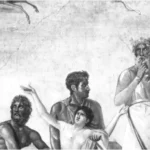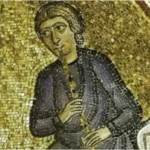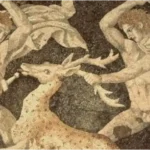
How Prehistoric Macedonia Set the Stage for a Kingdom
The rise of the powerful Macedonian kingdom under Philip II and Alexander was not a sudden event; it was the culmination of millennia of development.
Exploring past events, civilizations, and historical figures that shaped our world.

The rise of the powerful Macedonian kingdom under Philip II and Alexander was not a sudden event; it was the culmination of millennia of development.

To truly understand the society that produced Philip II and Alexander the Great, we must look beyond their battles and politics.

The spectacular conquests of Philip II and Alexander the Great were not just the result of military genius; they were built on a powerful economic foundation.

After the death of Alexander the Great, his vast empire quickly fragmented as his generals, the Diadochi, fought for control.

Beyond the grand narratives of emperors and battles lies the everyday reality for the millions who inhabited the Byzantine Empire.

The imperial court of Byzantium was a complex and often treacherous world, and one of its most unique and influential groups was the court eunuchs.

For over a thousand years, the Byzantine Empire survived in a hostile world, surrounded by powerful and aggressive neighbors.

The Byzantine Empire was not just a military and political powerhouse; it was also the center of a vibrant and complex economic system that dominated the Mediterranean for centuries.

For over a thousand years, Constantinople stood as the unparalleled center of the Byzantine world.

In the deeply religious world of Byzantium, saints were far more than just historical figures; they were powerful, active presences in the daily lives of the people.

In the Byzantine Empire, art and literature were not created merely for aesthetic enjoyment; they were powerful tools of ideology.

While the splendors of Constantinople often dominate our view of the Byzantine Empire, the vast majority of its population lived and worked in the countryside.

For the inhabitants of the Eastern Roman Empire, whom we call Byzantines, their identity was not a matter of debate: they were Romans (*Rhomaioi*).

The Byzantine political system was one of the most enduring in history, and at its heart was the absolute authority of the emperor.

The rise of the powerful Macedonian kingdom under Philip II and Alexander was not a sudden event; it was the culmination of millennia of development.